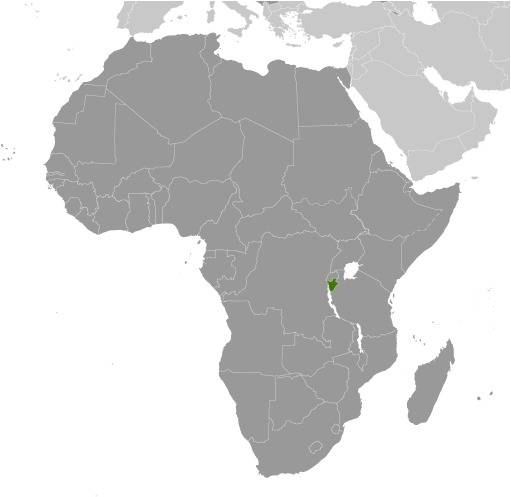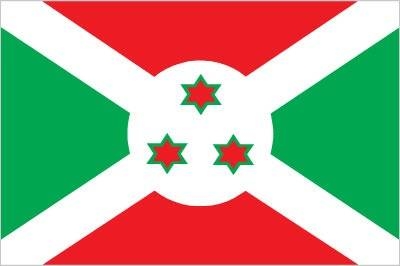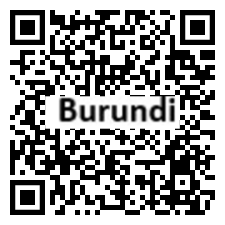Country Summary




Introduction
Background
Burundi gained its independence from Belgium in 1962 as the Kingdom of Burundi, but the monarchy was overthrown in 1966 and a republic established. The assassination of Burundi’s president in 1993 triggered over 10 years of ethnic violence between Hutu and Tutsi factions. Political violence and non-democratic transfers of power have marked much of its history.
Geography
Area
total: 27,830 sq km
land: 25,680 sq km
water: 2,150 sq km
Climate
equatorial; high plateau with considerable altitude variation (772 m to 2,670 m above sea level); average annual temperature varies with altitude from 23 to 17 degrees Celsius but is generally moderate as the average altitude is about 1,700 m; average annual rainfall is about 150 cm; two wet seasons (February to May and September to November), and two dry seasons (June to August and December to January)
Natural resources
nickel, uranium, rare earth oxides, peat, cobalt, copper, platinum, vanadium, arable land, hydropower, niobium, tantalum, gold, tin, tungsten, kaolin, limestone
People and Society
Population
12,696,478 (2022 est.)
Ethnic groups
Hutu, Tutsi, Twa (Pygmy)
Languages
Kirundi only 29.7% (official); French only 0.3% (official); Swahili only 0.2%; English only 0.1% (official); Kirundi and French 8.4%; Kirundi, French, and English 2.4%, other language combinations 2%, unspecified 56.9% (2008 est.)
Religions
Roman Catholic 58.6%, Protestant 35.3% (includes Adventist 2.7% and other Protestant 32.6%), Muslim 3.4%, other 1.3%, none 1.3% (2016-17 est.)
Population growth rate
3.63% (2022 est.)
Government
Government type
presidential republic
Capital
name: Gitega (political capital), Bujumbura (commercial capital); note - in January 2019, the Burundian parliament voted to make Gitega the political capital of the country while Bujumbura would remain its economic capital; as of 2022, the government's move to Gitega remains incomplete
Executive branch
chief of state: President Evariste NDAYISHIMIYE (since 18 June 2020); Vice President Prosper BAZOMBANZA (since 24 June 2020); note - the president is both chief of state and head of government
head of government: President Evariste NDAYISHIMIYE (since 18 June 2020); Vice President Prosper BAZOMBANZA (since 24 June 2020); Prime Minister Gervais NDIRAKOBUCA (since 7 September 2022)
Legislative branch
description: bicameral Parliament or Parlement consists of:
Senate or Inama Nkenguzamateka (39 seats in the July 2020 election); 36 members indirectly elected by an electoral college of provincial councils using a three-round voting system, which requires a two-thirds majority vote in the first two rounds and simple majority vote for the two leading candidates in the final round; 3 seats reserved for Twas, and 30% of all votes reserved for women; members serve 5-year terms)
National Assembly or Inama Nshingamateka (123 seats in the May 2020 election; 100 members directly elected in multi-seat constituencies by proportional representation vote and 23 co-opted members; 60% of seats allocated to Hutu and 40% to Tutsi; 3 seats reserved for Twas; 30% of total seats reserved for women; members serve 5-year terms)
Economy
Economic overview
highly agrarian, low-income Sub-Saharan economy; declining foreign assistance; increasing fiscal insolvencies; dense and still growing population; COVID-19 weakened economic recovery and flipped two years of deflation
Real GDP (purchasing power parity)
$8.69 billion (2020 est.)
Real GDP per capita
$700 (2020 est.)
Agricultural products
cassava, bananas, sweet potatoes, plantains, beans, vegetables, potatoes, cashew nuts, maize, taro
Industries
light consumer goods (sugar, shoes, soap, beer); cement, assembly of imported components; public works construction; food processing (fruits)
Exports
$283 million (2018 est.)
Exports - partners
United Arab Emirates 50%, Democratic Republic of the Congo 7% (2019)
Exports - commodities
gold, coffee, tea, raw earth metal ores, wheat flours (2019)
Imports
$927 million (2018 est.)
Imports - partners
China 14%, Saudi Arabia 14%, India 9%, Kenya 7%, United Arab Emirates 7%, Tanzania 5%, Zambia 5% (2019)
Imports - commodities
refined petroleum, packaged medicines, cement, raw sugar, cars (2019)
Exchange rates
Burundi francs (BIF) per US dollar -
Page last updated: Tuesday, November 22, 2022
